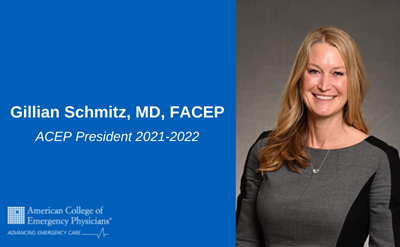WASHINGTON, D.C.—Mark S. Rosenberg, DO, MBA, FACEP, FAAHPM, an emergency physician at St. Joseph’s University Medical Center in Paterson, New Jersey and a member of the Board of Directors for the American College of Emergency Physicians (ACEP), today testified before the House Energy and Commerce Health Subcommittee about combating the nation’s severe opioid misuse and addiction crisis.
Dr. Rosenberg participated on behalf of ACEP in a two-day hearing “Combating the Opioid Crisis: Prevention and Public Health Solutions.” He specifically urged lawmakers to support two innovative emergency physician programs to help slow this epidemic, the Alternatives to Opioids (ALTO) and the Emergency Department-initiated Medication Assisted Treatment (MAT) programs. Dr. Rosenberg played a key role in developing the ALTO program at St. Joseph’s University Medical Center.
“This opioid epidemic claims the lives of more than a hundred Americans every day and more citizens have died each year during the past decade from drug overdoses than motor vehicle accidents,” said Dr. Rosenberg in his statement. “It took many years to get to this crisis point and it will unfortunately likely take some time to resolve it. But we’re on the right path.”
The “Alternatives to Opioids in the Emergency Department Act” (H.R. 5197) is sponsored by Reps. Bill Pascrell (D-N.J.,), David McKinley (R-W.Va,), Diana DeGette (D-Colo.,), and Scott Tipton (R-Colo.,). This bill would provide $30 million over three years to help establish a demonstration program to test alternative pain management protocols to limit the use of opioids in the emergency department. The Senate version (S. 2516) was introduced by Sens. Cory Booker (D-N.J.), Shelley Moore Capito (R-W.Va.), Mike Bennet (D-Colo.), and Cory Gardner (R-Colo.).
ACEP also supports the “Preventing Overdoses While in Emergency Rooms Act of 2018” (H.R. 5176), sponsored by Reps. David McKinley (R-W.Va.,) and Mike Doyle (D-P.a.,). This bill would provide grants to establish policies and procedures for administering Medication-Assisted Treatment (MAT) and develop best practices for care coordination.
The MAT protocol helps close gaps in opioid overdose treatment. Administering the initial dose of medication in the emergency department gives patients a much greater chance of successfully completing their treatment and getting their lives back, which is good for them, their families and their communities.
“Provide us with the tools to help us administer the most appropriate care for our patients based on their specific needs and circumstances,” said Dr. Rosenberg. “We will provide a better future for them and society.”
Additional speakers at the two-day hearing include Scott Gottlieb, MD, Commissioner of the Food and Drug Administration and Anne Schuchat, MD, Principal Deputy Director of the CDC. Click here to read Dr. Rosenberg’s testimony.
 American College of Emergency Physicians
American College of Emergency Physicians







